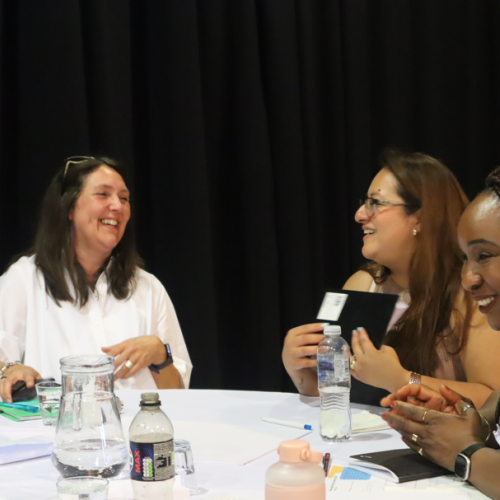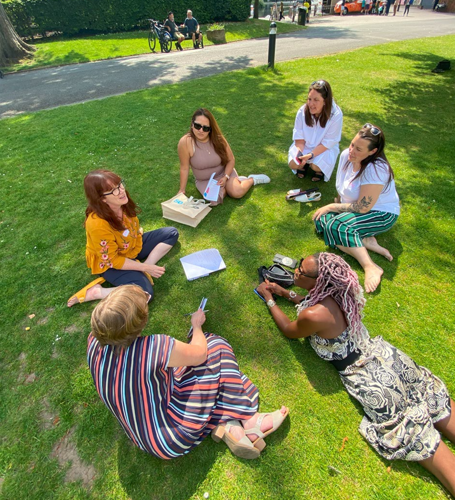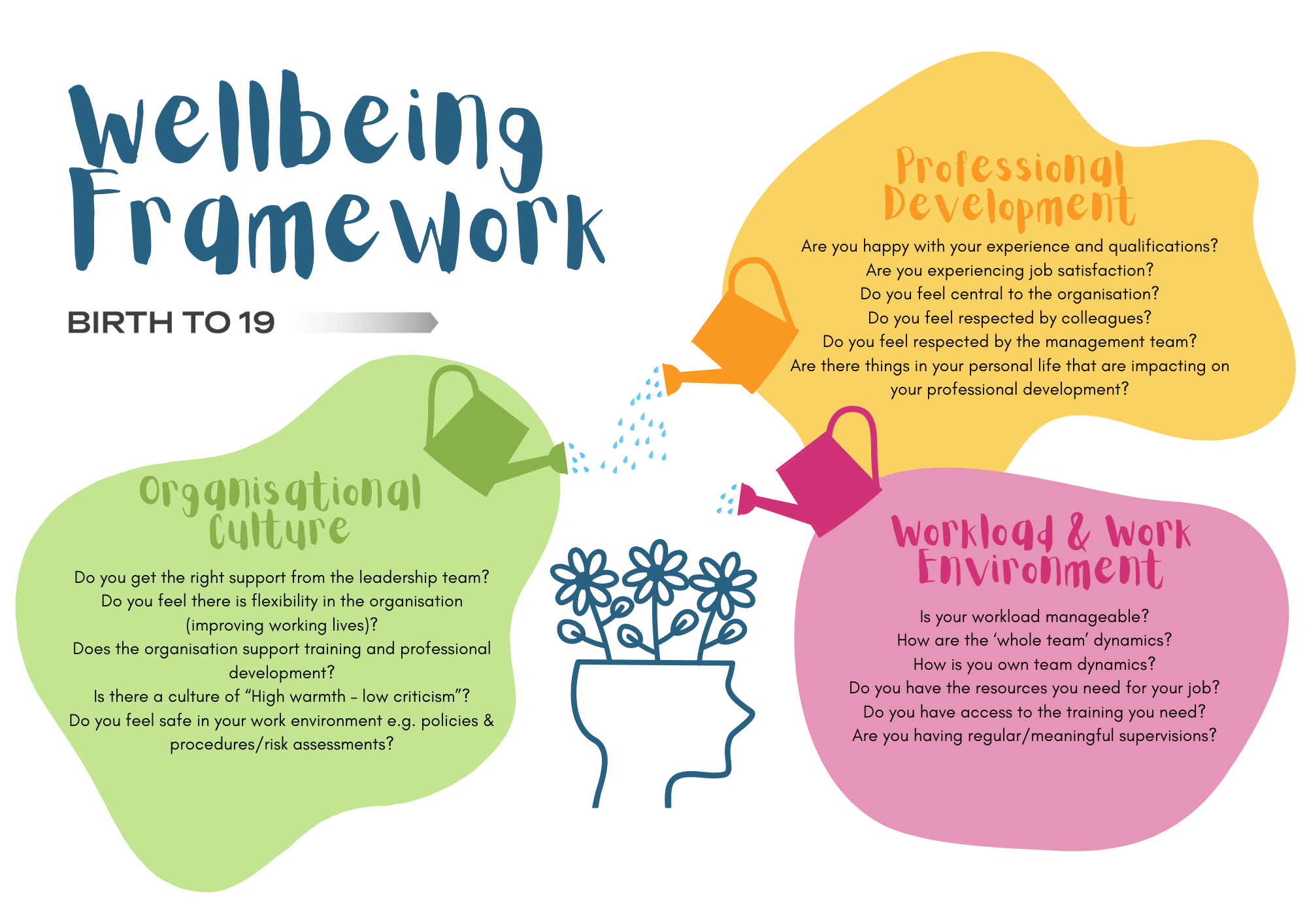Blog
The Leader's Role in Supporting Staff Wellbeing
As a sector, it is regularly reported that our staff feel burnt-out, suffer from stress and ultimately leave their jobs. The recruitment crisis is creating unprecedented pressure on early years services and it is more important now than ever before that we provide our workforce with a range of resources to support wellbeing.

Employee wellbeing can help maintain a high quality and motivated staff team. As a setting leader, you want your staff to be in a state of positive wellbeing, as this enables them work productively and creatively, build positive relationships, cope with normal stresses of life and make a meaningful contribution. And, as the DfE reminds us, “Better practitioner wellbeing is also a factor in children’s personal, social and emotional development.”
It is a leader’s role to:
• Develop a positive culture and healthy behaviours to promote positive mental health and wellbeing within the workplace
• Set examples of expected behaviour
• Support individuals, both when things are going well and when the unexpected happens.
• Make it known that wellbeing is everybody’s responsibility in your nursery
• Provide all staff with the tools, time and space needed to support staff and children’s wellbeing
Collecting regular feedback from staff can help you better understand how your setting’s culture acts as a contributory factor in achieving positive staff wellbeing, as well as providing you with the information you need to measure the impact of your interventions and inform your future approach
The Anna Fraud Centre has created a survey and guidance on how to use it, which can be downloaded here. If survey’s feel to formal you could try having discussions at staff meetings or providing a suggestions/feedback box in the staff room.
If you want to develop a wellbeing policy, to help shape your thoughts and help embed the approach, the NDNA have a template, available for members and non members for free!


In our recent Leadership in the Early Years network we discussed strategies that are used to help leaders embed staff wellbeing into their practice. These included:
- Threading wellbeing discussions into regular supervisions with their staff.
- Championing the value of one to-one discussions between line managers and staff as an opportunity to support wellbeing at work.
- Providing training for line managers to give them a better understanding of how to support mental health in the workplace.
- Providing workshops for all staff to give them a better understanding of how to support their own mental health.
- Reviewing the physical environment for staff and encourage the development of spaces that support wellbeing.
- Raising awareness of mental health and the support available to staff, both internal and external
- Taking supervisions outside, walking & talking.
- Providing free shared lunches for staff

We also talked about the importance of looking after your own wellbeing and recognising that there are other elements, not related to the workplace, which impact on a person’s wellbeing. Where possible offer links to external agencies that may support staff where possible.
Our Leadership in Early Years Specialist Learning Network provides a great opportunity for nursery managers and setting leaders to come together to share ideas and current challenges. Keep and eye on our social media and website for events.
Free Support Available
Education Support offers a free emotional support helpline for everyone working in education, including early years. It is open 24 hours a day, 7 days a week, and you will speak to a qualified counsellor. You can contact Education Support by phone, text, online live chat or email.
Every Mind Matters has useful tips to support your wellbeing, including a tool to help you make your own free Mind Plan, an action plan with tips from mental health experts.
*At Birth to 19, our staff are provided with this wellbeing framework. They are asked to consider the points listed before each supervision and use it as a prompt to raise any issues that impact on their wellbeing at work.
 |
Rebecca Oberg Director: Institute for the Early Years
|
